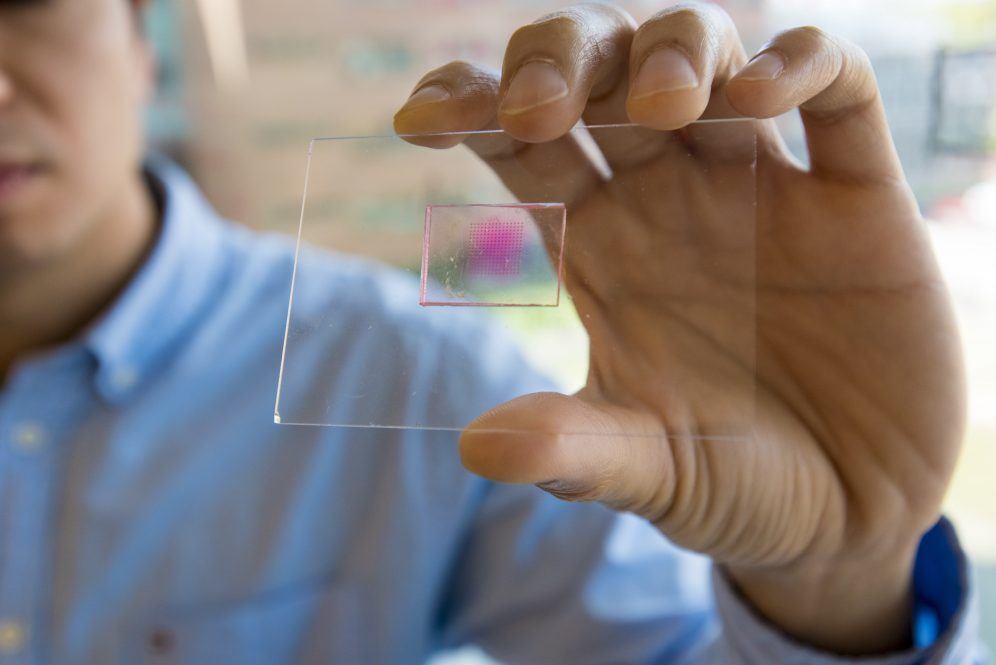With innovation becoming ever more prominent a feature of higher education, UConn Technology Commercialization Services (TCS) recently hired two in-house patent counsels to help inventors navigate the process for securing their intellectual property.
Recent hires Erin Daly and Nicholas “Nick” Caiafa joined Christine McCluskey, who works as the intellectual property specialist for TCS. Daly and Caiafa are senior managers of intellectual property for the life sciences and physical sciences and engineering, respectively.
They’re not only talking to an attorney. They’re talking to a scientist as well. — Erin Daly
In addition to their law degrees, Daly has a Ph.D. in organic chemistry, and Caiafa has a degree in mechanical engineering. Their scientific backgrounds enable them to talk to researchers about their inventions from a position of common understanding.
“They’re not only talking to an attorney,” Daly says. “They’re talking to a scientist as well.”
The team serves inventors in any discipline or department whether they are creating patentable technologies, copyrighted material, or developing a trademark.
“Our goal is to build UConn’s patent portfolio and really making it broader across all of the disciplines and the technologies we have here at UConn,” Caiafa says.
The first step for inventors to secure their intellectual property is by disclosing inventions to TCS which are further evaluated for patent protection and commercial potential.
The group emphasizes that engaging both the faculty and the TCS team early in the process is the best way to ensure intellectual property is protected properly. When researchers inform TCS of any possible patentable discovery early, they can have a useful conversation about the technology and the patenting process before putting that information in the public domain in the form of a paper or presentation.
If an inventor discloses an invention publicly before having the proper paperwork in place, they can lose intellectual property rights in foreign countries and even domestically after one year.
The team is also working to increase faculty awareness of things like the need to register copyrighted material with the U.S. Copyright Office in order to enforce a copyright, and consistent and appropriate use of trademarks to prevent a trademark from becoming unenforceable.
“I think establishing working relationships with faculty members and having open dialogue that’s ongoing will lead to quality patents,” McCluskey says.
With wealth of experience, the intellectual property team serves as a centralized knowledge source for all kinds of intellectual property questions.
TCS is delighted to offer this new service to faculty and encourages all UConn faculty to reach out to Daly and Caiafa with any questions they may have regarding patent filing and the process.



